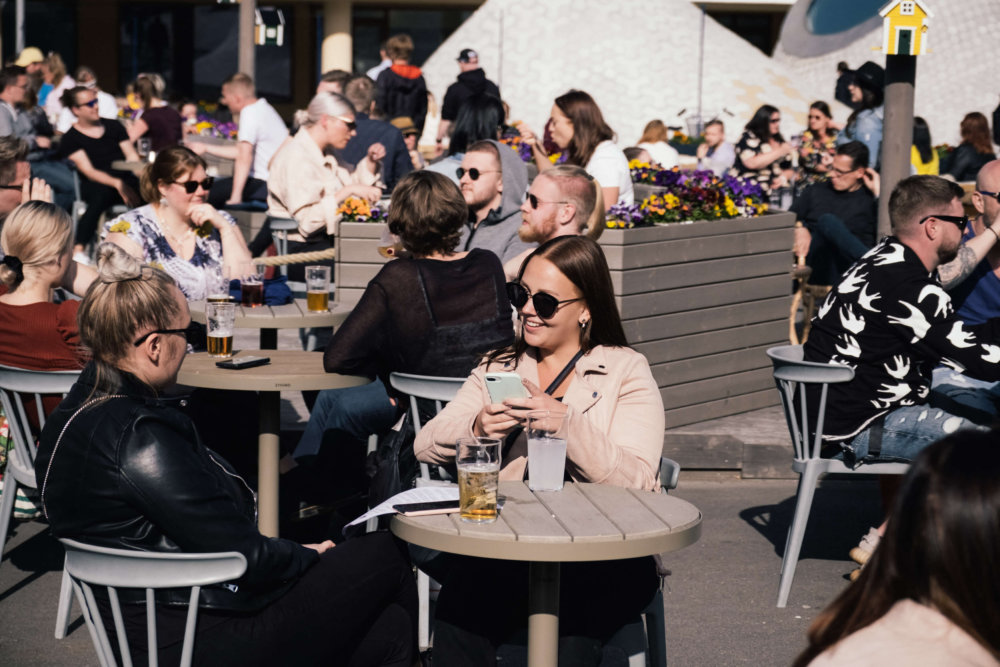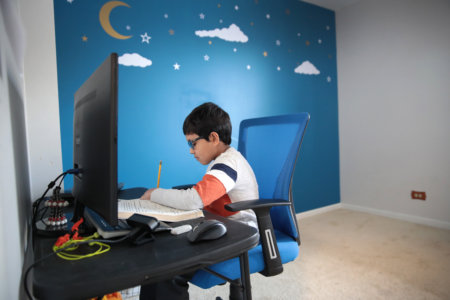
Several high-ranking universities attract international students to study in Finland — the country we know as the happiest place on earth. This Nordic nation consistently ranks first on the World Happiness Report, and 2021 is no different. According to Columbia University professor and co-creator of the World Happiness Report Jeffrey Sachs, this research analyses how satisfied people are with their life, not necessarily how much one laughs or smiles.
So what keeps the Finns happy, and would you experience the same if you were to study in Finland? Here’s a breakdown according to Paul Knott’s analysis in The New European.

People enjoy a drink while sitting on a terrace in Helsinki on June 1, 2020, after more than two months of closure because of the Covid-19 pandemic. On this day Finland has lifted much of the pandemic restrictions in place, opening libraries, museums, bars, cafes and restaurants to eat-in customers. Source: Alessandro Rampazzo/AFP
They’ve hacked the 9-5 workday
Most working professionals dream of work-life balance, and this is something the Finns have long figured out. Some work shorter or flexible hours, which requires them to be more productive and effective during office hours. They have maximum annual overtime. As a result, they work fast, save time, and leave early to enjoy family and leisure activities. Bolstered by social security, the Finns prove that it is possible to enjoy a comfortable life without spending most of your time earning.
Education is flexible and individualised
Finnish schools rank highly in the Programme for International Student Assessment (PISA) for key subjects and skills, yet students take few tests yet remain motivated on their learning, even without the burden of competition. Even private schools follow the national curricula and focus on quality education over profit. The goal is to provide as many children as possible with quality education.
Not only are classes kept small, but schoolteachers in Finland also come from the top 10% of the nation’s graduates. They hold masters’ degrees in education and are appropriately compensated. This culture carries on in universities, including the University of Helsinki, the University of Oulu, and Tampere University — and it has proven to produce well-rounded students at all levels.

People consult books at the renowned Oodi public library after its reopening after more than two months of closure because of the COVID-19 pandemic on June 1, 2020 in Helsinki. Source: Alessandro Rampazzo/AFP
They have high-quality public services
Prime Minister Sanna Marin made headlines when she was elected into office because she was a young woman. Yet if you study in Finland, you would know that this is not an outstanding feat there; every citizen has equal opportunity, which is tied into the high-quality public services available. Yes, Finnish people pay high taxes, but it translates to trustworthy, effective public service. All this contributes to a sense of wellbeing in the nation, even during tough times such as the pandemic.









